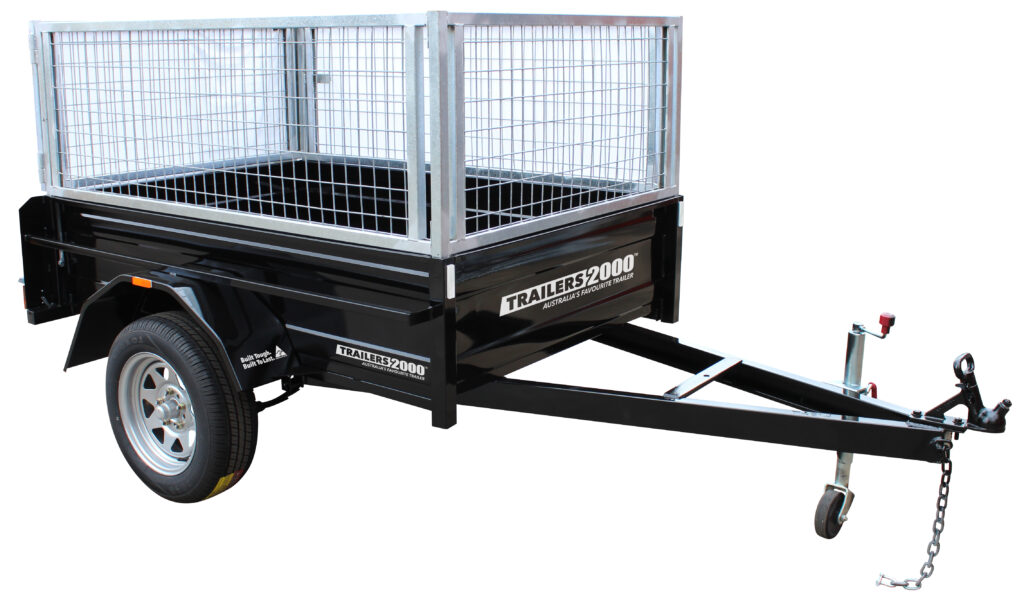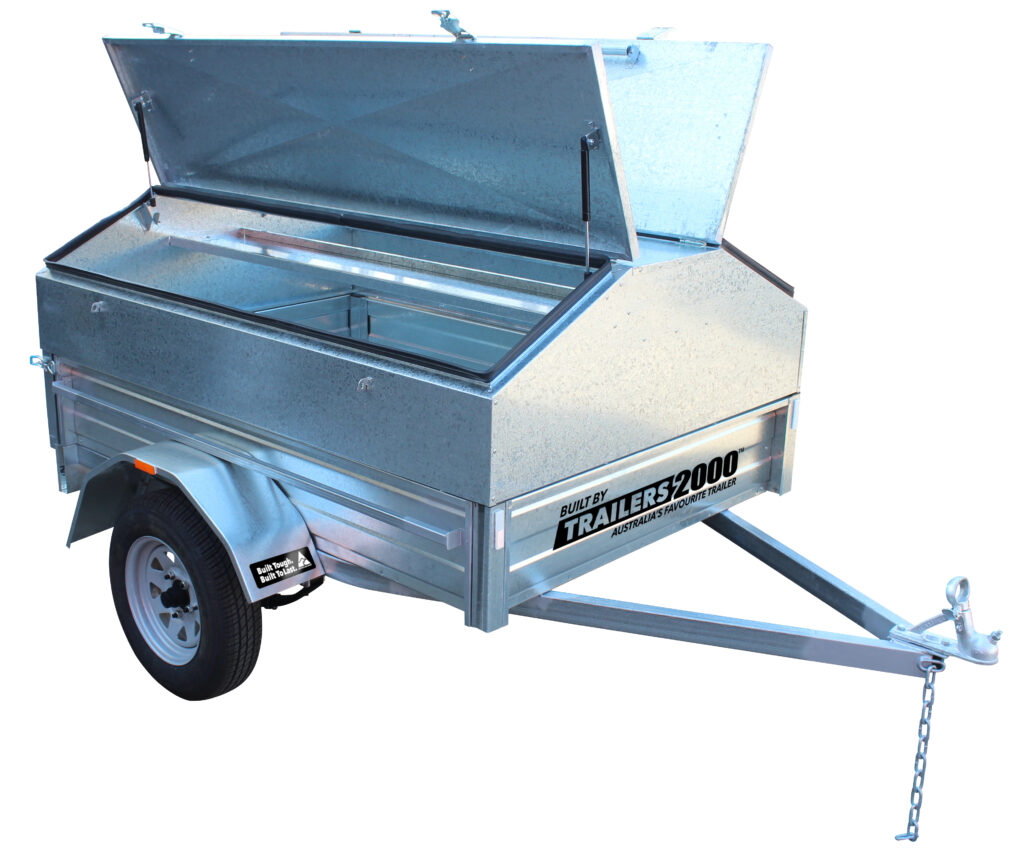Trailers are an extremely useful addition to any vehicle. They allow for the transportation of loads that would otherwise be impossible to transport with a conventional car. Determining the maximum weight a trailer can carry may seem fairly straightforward, but the answer is a little more complicated. Why? Well because it largely depends on your trailer size. This is because trailers are not rated for the load they can carry, but instead for the aggregate trailer mass or ATM.
Trailers come in a range of different sizes, such as a common 6×4 and 7×5 trailer or a large, heavy-duty 12×6 trailer, and with many different configurations, including a box trailer with cage, flat deck trailers, enclosed trailers and many more. Here is what you need to know about how much weight a trailer can carry.
What is ATM?
ATM is the total mass that the trailer can be when carrying the maximum load recommended by the manufacturer. An aggregate figure is used because the mass of a trailer can vary greatly depending on its type, features, and accessories. For example, an enclosed or box 7×5 trailer with a cage has more mass than a simple flatbed trailer but all are built on the same chassis, axle and tow hitch. Placing the same load in these different types of trailers will therefore result in very different ATMs.
What trailer options are available?
There is a large range of trailers available with a range of different accessories and customisations that make them more suited to carrying certain types of loads and weights. Before purchasing a trailer, you should consider what types of material or objects you intend to mainly transport, and purchase a trailer set up that is designed for this and can adequately/legally support the weight.
A box trailer, for example, can have either a single or tandem axle. A 5×3’6”, 6×4, 7×4, 7×5 and 8×5 box trailer with a single axle trailer has an aggregate trailer mass of 750kg, whereas 8×5, 9×5, 10×5, 10×6 and 12×6 box trailers are available in 2490kg and 3000kg aggregate trailer masses.
A heavy-duty trailer fitted with a cage is ideal for transporting lighter and bulkier items, such as green waste, landscaping equipment or even furniture. The cage walls of these trailers help to secure larger loads and keep any debris contained when driving at speed. The cages like the heavy-duty trailer, are all constructed from galvanised steel and therefore built to last.

Tradesmen such as builders, plumbers or electricians might opt for a trailer fitted with a tradesman’s canopy or carry racks. A tradesman’s canopy provides a safe space to secure tools and materials and keep them protected from the weather. The canopy is fitted with gas struts on the doors, rubber weather seals, locks and an internal shelf. Carry Racks are another potential addition to your trailer and they allow for the transportation of longer materials such as timber or pipes or equipment such as ladders.

Finally, tonneau covers are available for either box trailers with a cage or a flat deck trailer. A tonneau cover keeps the load secure and protected either when parked or driving.
What to consider before carrying a load in your trailer?
So, before you start loading up your trailer, there are a few things you need to consider. Firstly, as previously discussed, you need to know the ATM of your trailer.
Secondly, you need to know how much your trailer weighs. This includes the weight of the trailer itself as well as any accessories or customisations that have been added. When you take the gross weight of your trailer away from the ATM, the result is the maximum load weight that you can carry.
Finally, while it may seem obvious, it is important to consider that different loads and materials will have very different weights for their volume. For example, a load of green waste will be considerably lighter in volume than sand, soil or gravel.
For more tips on safely loading your trailer, see our Safe Trailer Loading Tips here.
Trailers 2000 are a leading Australian manufacturer of a range of trailers and accessories. Connect with the experts at Trailers 2000 today to discuss the right trailer to carry your load.
